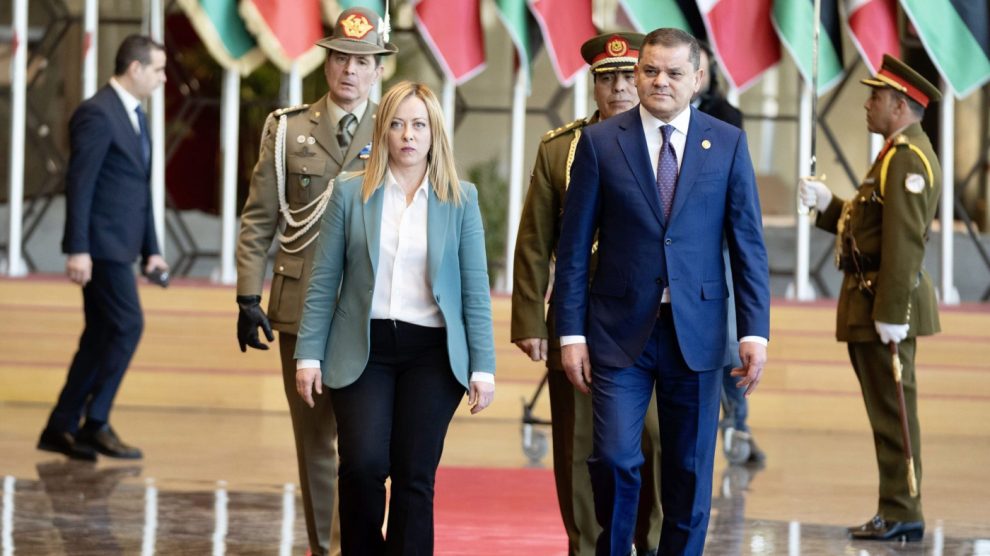You can now fly from Tripoli to Rome, as Italy has just lifted a 10-year ban on Libyan civil aviation’s use of its airspace. The Libyan authorities confirmed as much on Sunday, noting that Prime Minister Giorgia Meloni had personally informed her Libyan counterpart Abdelhamid Dbeibah and pointing out that the decision further deepens relations between Rome and Tripoli.
- The move follows a meeting between Libyan and Italian officials, as well as bilateral technical discussions and a field visit carried out in May to “verify security procedures at Libyan airports.”
What it means. Flights from Libya have long been restricted to destinations such as Tunisia, Jordan, Turkey, Egypt and Sudan, while the European Union has banned Libyan civil aviation from its airspace. But this is a potentially crucial time for the country’s stabilisation process, and Italy is leading the diplomatic effort to foster the social and political conditions that allow for the regular holding of presidential and parliamentary elections.
- That’s part of Rome’s wider drive to boost African economies – so as to spur mutual growth and positive knock-on effects on issues such as migration – and growing diplomatic and business outreach in the region.
It’s about rebuilding a country. Since Muammar Gaddafi’s fall in 2011 and given the civil war that ensued, only a few airlines operate flights to and from Libya. The damaged infrastructure compounds the political difficulties: destroyed runways and facilities require a degree of stabilisation for mending, a major renovation project unto itself – where Italian companies could also be involved.
What happens next. Flights will resume in September, although the Libyan and Italian authorities have agreed they will be operated by a single carrier from each country, due to the risk of looser controls and security issues. The problem is related to the spread of armed groups, which sometimes are even affiliated with international terrorist organisations, such as the Islamic State, within Libya.
- The flip side of this is that if the experiment proves successful and Tripoli manages to consolidate its standing, European and Western countries might become more inclined to aid its complex stabilisation process.




